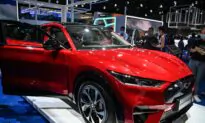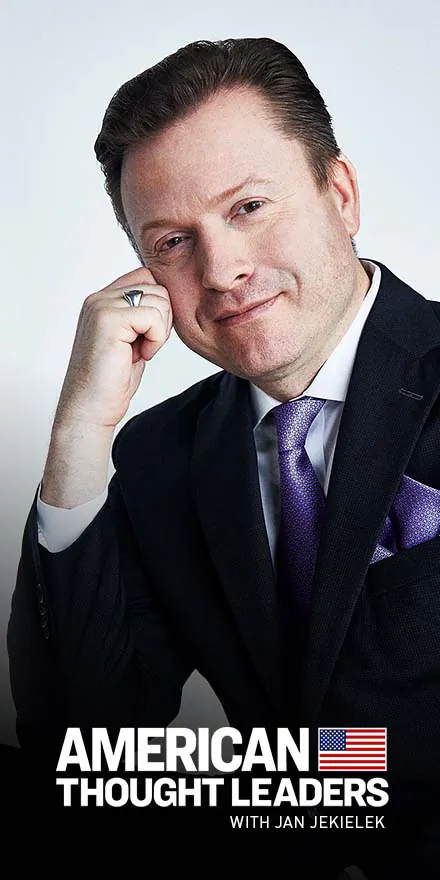During the 2018 Canadian International Autoshow (CIAS) in February, BMW were front and centre to unveil three new products. Two are actual production models and the third, a concept, but one step closer to making it into showrooms in the very near future.
We met up with three key members of the BMW team to chat about each unveiling: Matthew Wilson, national manager, product planning, BMW—for the BMW M4 CS; Kevin Marcotte, national manager, BMW i—for the BMW i8 Roadster; and, Debra Roushorne, MINI product planning manager—for the not-quite-ready-for-primetime MINI Electric Concept.
Over the years, BMW has enjoyed great success with their M-series automobiles. The “M” stands for Motorsport. M-series vehicles were initially created to facilitate BMW’s racing program during the latter half of the 20th century. Ultimately BMW M began to supplement BMW’s vehicles portfolio with specially modified higher trim models. M-badged cars are about pure performance. Traditionally they will include modified engines, transmissions, suspensions, interior trims, aerodynamics, and exterior modifications. Adding to the allure and general pedigree of this sub-brand, all M models are tested and tuned at BMW’s private facility at the Nürburgring racing circuit in Germany.
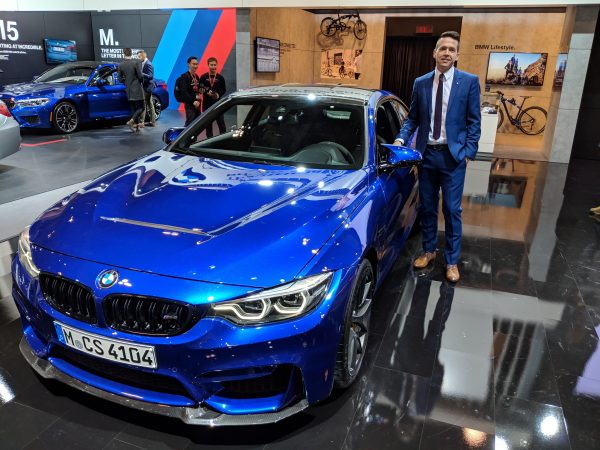
“Had we been able to, we would have also shown the M3 CS here at CIAS, but circumstances dictated otherwise, stated Mr. Wilson. The M4 CS starts in production this July and we anticipate the Canadian market place will receive 90 of these performance autos.”
“There is much to like about this marque. It incorporates some amazing technology and is 70 pounds lighter than the M4 Competition, thanks to the use of carbon fibre and lightweight forged wheels,” Mr. Wilson continued. “This is a street legal track car. BMW engineers have worked diligently on this package. Horsepower is up. Torque is up—they (engineers) have created what amounts to a perfectly balanced, track-oriented car.”
“While some enthusiasts might try to wring out a little more from the motor, BMW is very satisfied with this end result!”
Talking with a beaming Kevin Marcotte, his enthusiastic exuberance for the sleek-looking i8 Roadster was palpable. BMW has put a new spin on its hybrid i8 sports car. For 2019, the BMW i8 will be available as a two-seater hybrid with a convertible top.
“The all-new i8 Roadster is a hybrid all-wheel drive sports car that features its i8 predecessor’s gullwing doors. This unique car has a “traditional” combustion engine driving the rear wheels and an electric motor driving the front wheels, said Mr. Marcotte. “It can accelerate from 0 to 100 km/h in 4.4 seconds and has a top speed of about 250 km/h!”
While this is not an all-electric vehicle, this unique convertible offers 30 kilometres of pure electric driving before it switches to the internal combustion engine.
Scheduled to arrive in showrooms in mid to late 2018, the i8 Roadster is the third car in the “i” series sub-brand, which includes the original i8 model, launched in 2014 and the electric i3 introduced in 2013.
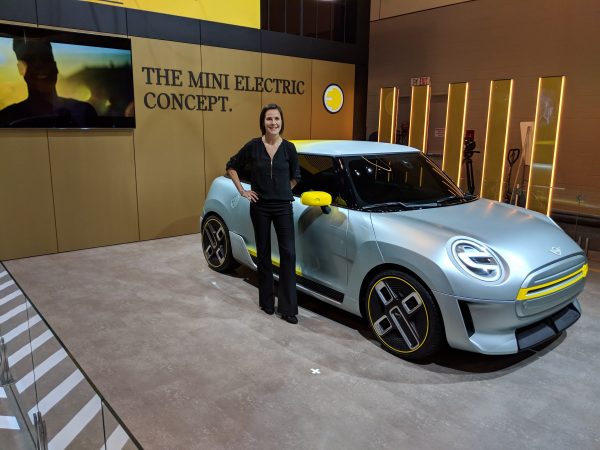
We then spoke with Debra Roushorne, MINI product planning manager. While it seems as if the MINI Electric Concept has been around forever (in car terms that is), it really has been—in one form or another! In fact, BMW’s “I” sub-brand owes much to the MINI E-Concept.
“With parent company BMW making an enormous commitment to electrification a few years back,” stated Ms. Roushorne, “MINI engineers and designers were able to tap into BMW technology and expertise and do more on the EV front. Back in 2009, MINI designed and presented the MINI E—an electrified version of the MINI Cooper with a range of about 160 kms—for field trials in various countries in a few participating cities including Los Angeles, Tokyo, and Munich. Hundreds of these vehicles drove in major urban centres, collecting enormous amounts of data for MINI engineers.”
At CIAS, we were able to see what may be a close to the final version of this vehicle. Ms. Roushorne made it clear that this car “…is based upon the traditional three-door hatch MINI urban commuter. True to its original roots as an energy efficient, small city car, the MINI Electric Concept promises to herald in a new era for MINI and also parent company BMW in the expanding field of EVs.”
Consumers should start to see this practical city car late 2019.
BMW has long been considered a leader in the automotive world. By all accounts, come 2025, the lineup of BMW cars will be drastically different from the lineup we know today. Is this a good thing? Time and consumer trends will surely tell.
David Taylor is an independent automotive lifestyle writer, producer, and editor based in Barrie, Ontario who is fascinated by innovation and technology which enhance the overall driving experience. He’s also a member of the Automobile Journalists Association of Canada (AJAC) and is a Director of that organization’s Canadian Car of the Year Award. Follow him on Twitter @Omemeeozzie or on Instagram @hugoscaroftheweek.
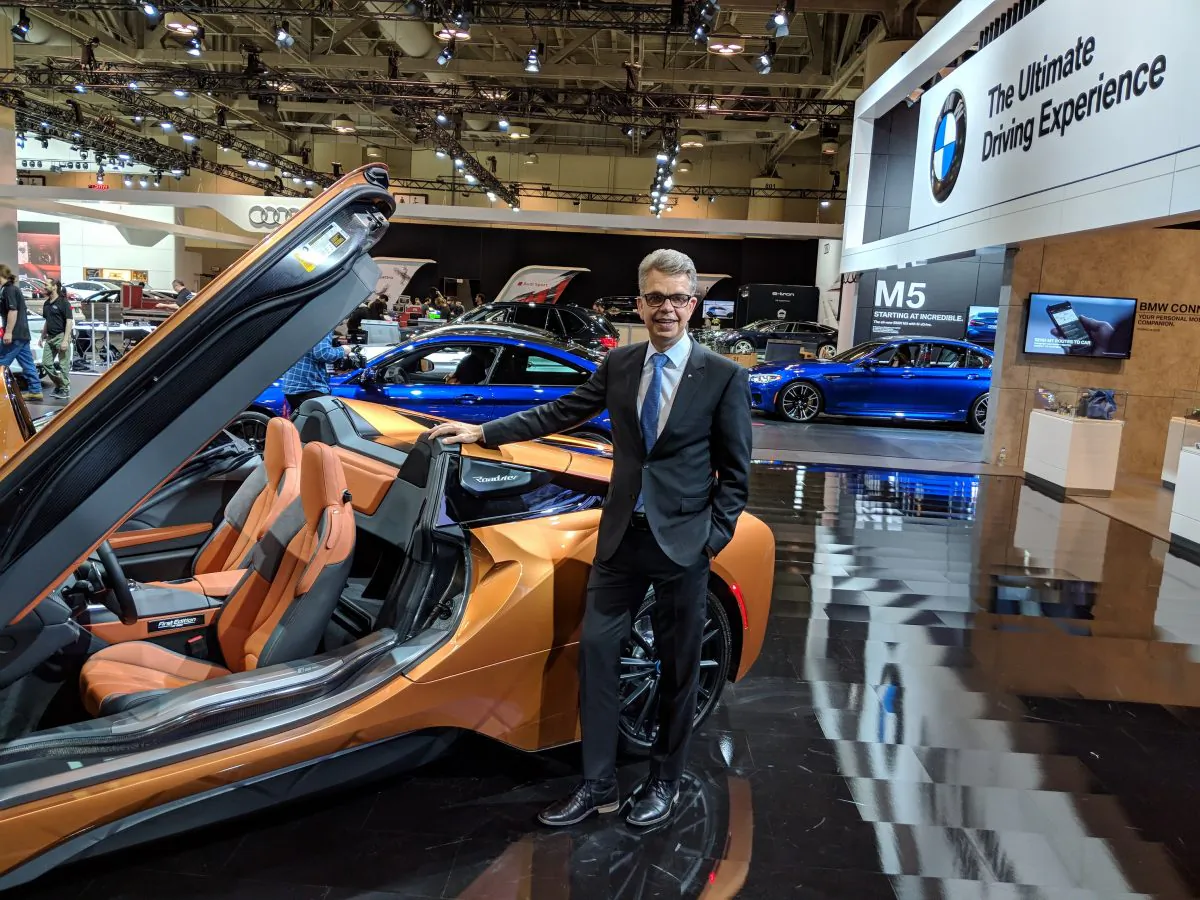

 Friends Read Free
Copy
Facebook
Tweet
Friends Read Free
Copy
Facebook
Tweet







